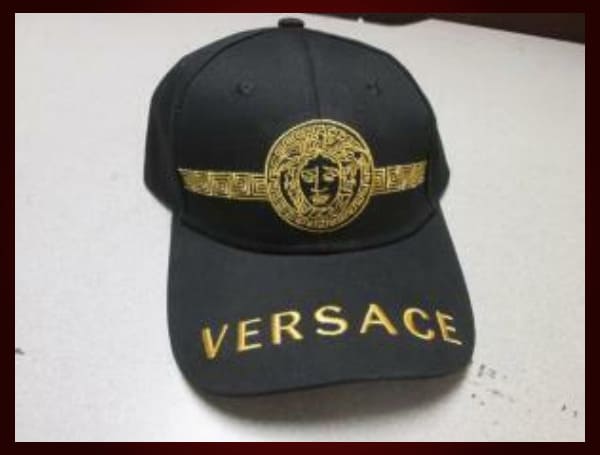U.S. Customs and Border Protection (CBP) officers seized two packages containing 614 pieces of counterfeit designer apparel on July 28 at Chicago O’Hare’s International Mail Branch.
According to CBP, the items were deemed to be counterfeit by CBP’s Centers of Excellence and Expertise, the agency’s trade experts, and would have had a combined Manufacturer’s Suggested Retail Price (MSRP) of $795,175, if genuine.
The first shipment was arriving from Thailand. When CBP officers examined the shipment to determine the admissibility of the goods they found 565 pieces of jewelry, handbags and other apparel displaying the logos of Louis Vuitton, Chanel, Gucci, Burberry, Prada, and Van Cleef & Arpels.
In the news: Border Agents Mistakenly Release Migrant On The Terror Watchlist Into The US
The items were heading to a residence in Ohio; had the items been real, the MSRP for these products would have been $689,160.
The second shipment CBP seized Friday night was also arriving from Thailand and was headed to a residence in Dallas, Texas.
CBP officers examined the shipment to determine the admissibility of the shipment, and discovered the box contained counterfeit jewelry, handbags, watches, caps, and socks displaying the logos of Tiffany and Co., Rolex, Yves St. Laurent, Hermes, Gucci, Louis Vuitton, Chanel, Versace, and Dior. Had these items been real, the MSRP for these items would have been $106,015.
Both shipments were seized for infringing on the designer’s protected trademarks.
“CBP has made significant improvements in our detection, identification, and targeting capabilities,” said LaFonda D. Sutton-Burke, Director, Field Operations, Chicago Field Office. “These resources, along with enhanced information sharing and partnerships, are critical components of CBP’s ability to detect and deter the entry of dangerous shipments.
In the news: Florida Gov. DeSantis: Border Authorities Should “Drop” Cartel Members With Deadly Force
The illicit trafficking of counterfeit goods offers criminals a complementary source of income and a way through which they can launder money.
Additionally, monies received from the sale of counterfeit products can be channeled towards the further production of fake goods or other illicit activities. Counterfeiting is a hugely profitable business, with criminals relying on the continued high demand for cheap goods coupled with low production costs.
Nationwide in Fiscal Year 2022, CBP seized over 24.5 million shipments of IPR violations that would have been worth just shy of $3 billion, had the goods been genuine. CBP protects citizens from unsafe and substandard products by seizing merchandise that infringes on trademarks and copyrights recorded with CBP through the e-Recordation program https://iprr.cbp.gov/s/.
CBP has established an educational initiative to raise consumer awareness about the consequences and dangers often associated with purchasing counterfeit and pirated goods. Information about the Truth Behind Counterfeits public awareness campaign can be found at https://www.cbp.gov/FakeGoodsRealDangers.
“This is a great example of the work our officers do to protect consumers and the U.S. economy,” said Chicago’s Acting Area Port Director Michael Pfeiffer. “Our officers continue to use their training, knowledge, and skills to identify high-risk shipments and shut down illicit suppliers.”
CBP encourages anyone with information about counterfeit merchandise illegally imported into the United States to submit an e-Allegation. The e-Allegation system provides a means for the public to anonymously report to CBP any suspected violations of trade laws or regulations related to the importation of goods in the U.S.
Android Users, Click To Download The Free Press App And Never Miss A Story. Follow Us On Facebook and Twitter. Signup for our free newsletter.
We can’t do this without your help; visit our GiveSendGo page and donate any dollar amount; every penny helps

